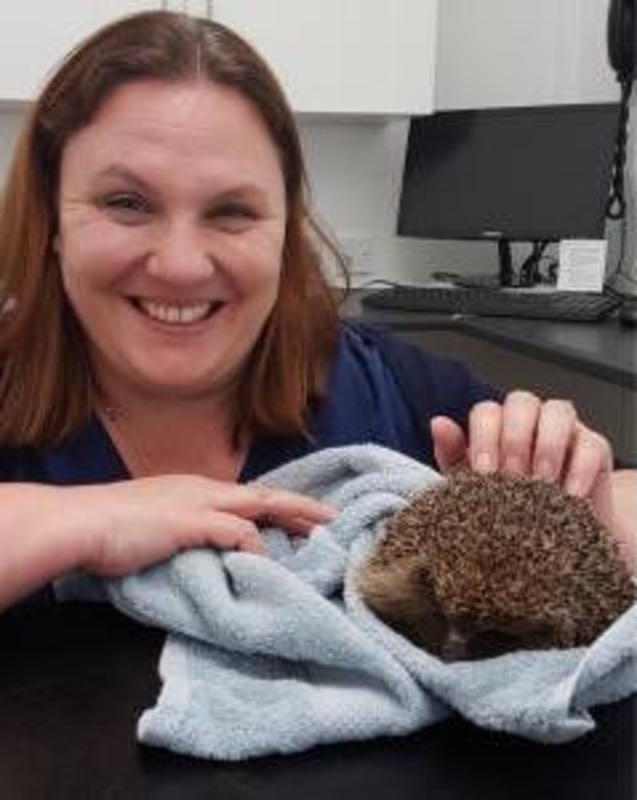Kelly Hayhow is one of our MVP gems - her long-standing passion for wildlife has morphed into an often full-time job as she hand-rears or rehabilitates injured or orphaned animals.
"My passion for wildlife is certainly inherited from my mum, I remember as a child she hand reared a baby sparrow in a cage on the bedroom windowsill, the sparrows parents would come down and feed it as well. So it was only natural that I would go into a career in caring for animals.
"My passion for wildlife is certainly inherited from my mum, I remember as a child she hand reared a baby sparrow in a cage on the bedroom windowsill, the sparrows parents would come down and feed it as well. So it was only natural that I would go into a career in caring for animals.
Working in a vets since I was 15 has given me invaluable experience and skills with wildlife along with volunteering in a wildlife hospital every other weekend assisting with their rescues as well. Here at MVP while we are not a wildlife hospital we still have many injured/orphaned birds and animals brought into us. I'm very lucky that we have a separate quiet isolation ward for wildlife away from the hustle and bustle of the busy practice, here it can stay while being assessed for the appropriate course of action.
The vets are always willing to give everything a fighting chance wherever possible and the cost of this is generously absorbed by the practice. When the time comes for the wildlife to leave the practice it is usually in a cage bound for my house or my mums who helps out tremendously with the space and rehabilitation.
We have various runs, cages, aviarys and sheds to accommodate the wide variety of visiting wildlife such as hedgehogs, geese, swans, corvids, the odd badger, fox and many many blackbirds to name but a few.
My most memorable rescue/hand rear was a one day old fawn called Frankie, who lived with us for 18 months before moving to a wildlife centre in Gloucester. He was certainly my most challenging but most rewarding rescue!
My favourite creature has to be the hedgehog, this year has been our busiest year by far, many of them are still with us overwintering until their release in the spring. My very special case this year is "Hope", she was brought to MVP by a member of the public after being found out in daylight (a hedgehog out in daylight always needs help). She weighed just 50g, was covered in fly eggs which would have quickly hatched into maggots. After examination and warm fluids from the vet she came home with me. I spent 3 hours carefully removing all the fly eggs, keeping her warm and giving her small amounts of food, 4 hours later she collapsed and I thought there was no hope (excuse the pun) but not one to give up I persevered through the night. Six months later "Hope" now weighs 500g and is due for release this spring.
I'm very lucky that I have a great support network both at work and at home with a very patient husband. My family are used to me arriving home from work with the mystery cardboard box, my youngest son is always keen to see what I've got and to get stuck into helping, he's certainly inheriting my passion.
Obviously our main aim is that wildlife be put back into the wild wherever possible and that help or a rescue is only given when appropriate. We have many many seemingly orphaned birds brought into the practice especially in the spring, many of these birds are simply exploring their surroundings and often have parents nearby keeping a close eye.
If the baby birds are in danger from cats or roads for example, then of course is absolutely appropriate to rescue them and get them to your nearest willing vets or wildlife centre.
I hope that I can continue to rescue, rehabilitate and release the many species of wildlife we see. There is no better feeling than seeing an animal or bird survive against all odds to then go on to be released and live a normal life in the wild."

